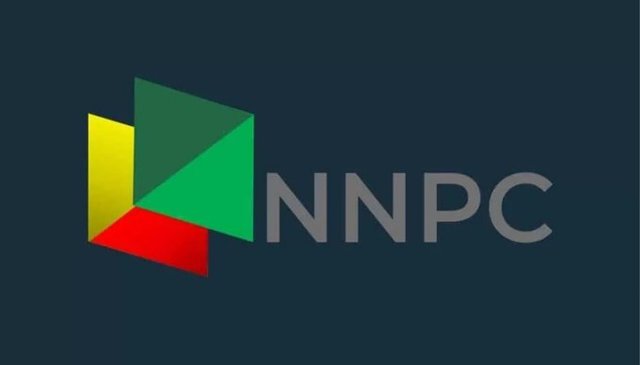The Nigerian National Petroleum Company Limited has confirmed that the federal government incurred a debt of N5.1 trillion in under-recovery and energy security expenses for fuel importation in 2023.
It also stated that a total sum of N9.38 trillion, described as receivables, was incurred on behalf of the federal government in 2023 for fuel imports.
In its financial statement for the fiscal year ending December 31, 2023, the national oil firm explained that N6.25tn was accrued under domestic crude oil supply and N3.14tn under other receivables.
Receivables, also regarded as accounts receivable, are debts owed to a firm by its customers for goods or services used or delivered but not yet paid for.
The amount (N9.38 trillionn) was N7.2 trillion or 76.7 per cent more than the N2.18 trillion expenses incurred in the preceding year of 2022.
“Receivables from the Federation relate to expenses incurred on behalf of the Federation by the Group,” the report noted.
On the N5.1 trillion in under-recovery and energy security expenses, the firm stated that the cumulative amount spent was used as expenses from crude oil supply for domestic use and other receivables on behalf of the federation after it instructed the company not to sell its Premium Motor Spirit, popularly known as petrol, above a certain regulated price.
This total cost is made up of January to May 2023 under-recovery of N3.3 trillion and August-December 2023 energy security expense of N1.8 trillion.
A breakdown as indicated on the NNPCL books showed that the debt claims had an opening balance of N2.1 trillion from the closing period of 2022, an undefrayed cost of N4.84 trillion and a payment of N649.45 billion as defrayed costs making a total of N6.25 trillion.
Explaining the implications, the oil company said: “The total undefrayed cost is made up of January to May 2023 under-recovery of N3.3 trillion and August-December 2023 energy security expense of N1.8 trillion.
“Under-recovery arises when the landing cost of premium motor spirit is higher than the local regulated market price. “These amounts are receivable to the group as they are defrayed and charged against amounts due to the federation every month.
“Energy security expenses are expenses incurred by the group in fulfilling its obligations as the supplier of last resort for energy security purposes on the account of the federation in line with the provisions of Section 164(m) of the Petroleum Industry Act, 2021.
“As of year-end 31 December 2022, the amount to be remitted based on crude oil purchased is due 90 days after the period of lifting. During the period, the Company made a total cash payment of nil (2022: N58.8 billion) to the Federation leaving an outstanding payable of N6.25 trillion from an amount of N2.06 trillion in 2022.
“In line with Section 64(M) of the Petroleum Industry Act (PIA) 2021, the cost incurred by NNPC Limited (Group) as the energy supplier of last resort for energy security reasons, and all associated costs shall be on the account of the federation,” the report stated.
“The government instructed that NNPCL cannot sell its premium motor spirit above a certain regulated price. However, the cost of importing this PMS is usually much higher than this regulated price. The under-recovery is essentially the difference between the actual landing cost of the product and the regulated price. This balance is used to reduce the cost of sales of the group.
“The corresponding entry is either used to reduce the liability due to the Federation or used as a receivable from the Federation. Premium motor spirit cost under-recovery is recognised where there is reasonable assurance that it will be received and all attached conditions have been complied with. When it relates to an expense item, they are deducted in reporting the related expense in cost of sales.”
The audited statement also stated that the company received a total sum of N23.99 trillion as revenue from contracts with customers but spent a total of N16.95 trillion as cost of sales leaving a gross profit of N7.03 trillion.
The figure is an increase of N15.17 trillion or 63.2 per cent from N8.82tn recorded as revenue from contracts in 2022 and a surge of 60.5 per cent or N10.25 trillion from N6.7 trillion from the cost of sales in 2022.
Further analysis revealed that the company got a revenue of N14.07 trillion from sales of crude oil, N7.15 trillion as revenue from petroleum product sales, N2.3 trillion from sales of natural gas, N94 million from sale of power and N464.94 billion as proceeds from its services from seismic contracts, time-based contracts, gas transmission tariffs, shipping, marine and engineering making a total of N23.99 trillion.
Similarly, Nigerians were the highest contributor to the company’s revenue in terms of geographical market, generating a total of N21.3 trillion from its sales; Panama was the second on the list with revenue of N2.05 trillion. Other countries include Cayman Islands (N402.76 billion), Bahamas (N151.79 billion), Cyprus (N80.499 billion), United Arab Emirates (N3.15 billion), and United Kingdom (N2.00 billion).
The NNPCL also spent N132.6 billion to sell and distribute petroleum products to marketers and distributors in 2023, marking an 82.7 per cent increase in the cost of sales from N22.88 billion in 2022.
It got a profit of N15.95 trillion from exchange differences in the translation of foreign operations. This represents an increase of 86.39 per cent or N13.78 trillion from N2.17 trillion in 2022. It also donated N199 million to host communities from zero donations in 2022.
The statement further noted that contingent liabilities for lawsuits against the Group are estimated at N18.14 billion and N620.24 billion.
Punch


























































